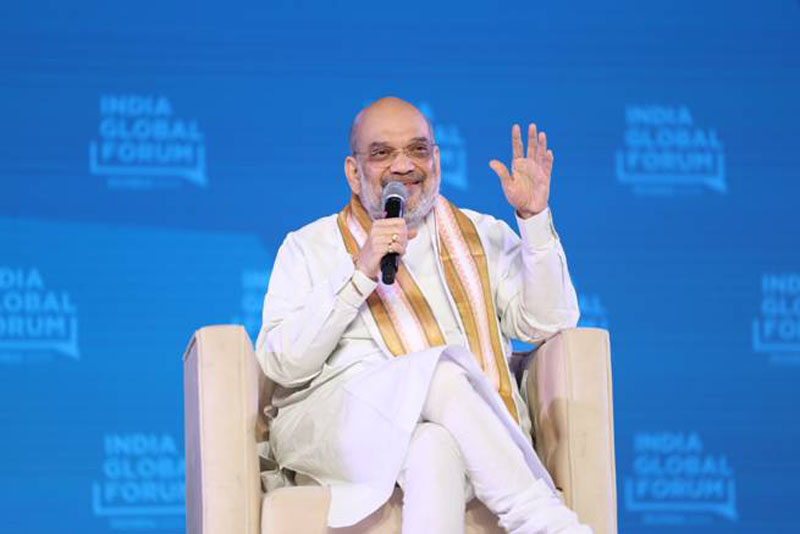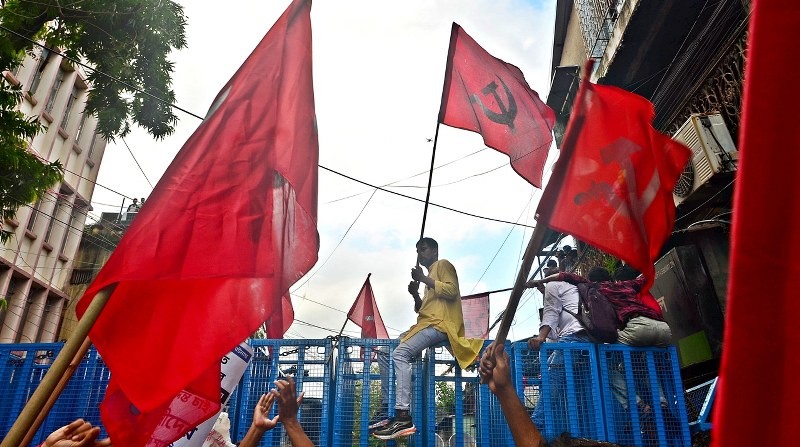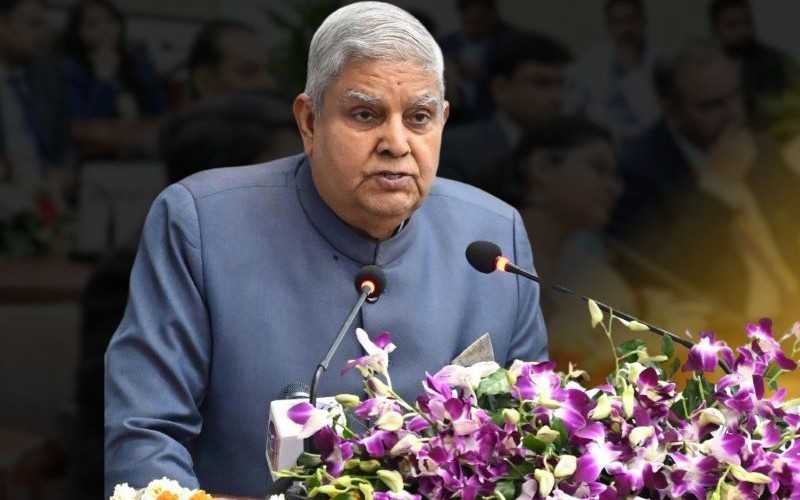Significant transformations took place in every sector in last 10 years under PM Modi: Amit Shah

Mumbai/UNI: Union Home Minister Amit Shah, while emphasising on significant transformations that took place in every sector in last 10 years under the leadership of Prime Minister Narendra Modi, pointed out that the decisions made in next five years will determine where India will stand in the centenary year of independence in 2047.
Addressing the IGF Annual Investment Summit-NXT10 here on Wednesday, he said that upcoming months will witness elections in India, where democracy marked its beginning.
The upcoming elections in India will shape the destiny of the country for the next 25 years, he said.
He highlighted that these elections are not only about democracy but also a celebration of synergy between democracy and security, ensuring the well-being of the poor, public welfare, tradition and technology.
Shah further stated that under the leadership of PM Modi, India is progressing towards being self-confident, self-reliant.
India now has a dynamic government from a dormant one, having a progressive growth, and moving towards becoming a top economy from its earlier fragile state, he noted.
He mentioned that this journey will continue for decades, and the goals set by PM Modi for India, to be a fully developed, self-reliant, and counted among the top economies by 2047, will certainly be achieved.
He emphasised that "we have the performance of the past 10 years and a roadmap for the next 25 years to attain these goals."
Shah also emphasised that "to understand the changes of the past 10 years, we have to compare these transformations against those of the previous regime. This would be the best parameter to evaluate the performance of the present government led by PM Modi."
He pointed out that in 2014, the economy was deteriorating, investor confidence was low, corruption scandals worth Rs 12 lakh crore had shaken the nation's confidence, crony capitalism was at its peak, inflation was soaring, fiscal deficit was out of control, ease of doing business ranking was significantly low and the country's security system was also weak.
He explained that the people’s decision to give a decisive mandate to Modi in 2014 led to the formation of this government.
Shah mentioned that before this, the country experienced 30 years of political instability, and after a long time, a full mandate was achieved by any political party.
He stated that from there, the growth story of India began with development in security, education,
innovation, and the economy.
He mentioned that the average inflation rate between 2004 and 2014 was 8.2 per cent, reaching double digits in 2010, 2011, and 2013, however, today, it has been consistently maintained below five per cent.
Shah highlighted that the Modi government's efforts in correcting banking and forex mismanagement, gave way for a new type of politics in the country, he said.
He stated that "for a long time, our country's politics was plagued by four evils – dynastic politics, casteism, corruption and appeasement – with no place for merit."
However, in the past decade, under the leadership of Modi, not only in parliament, but in all elections across the country, the politics of direct performance has been established, he added.





